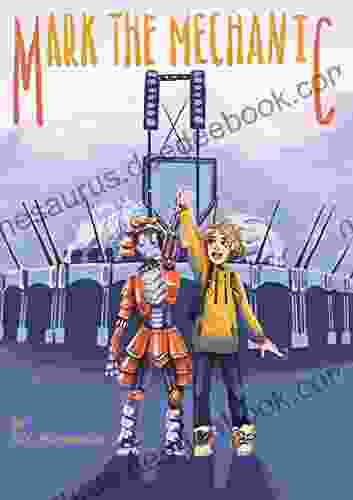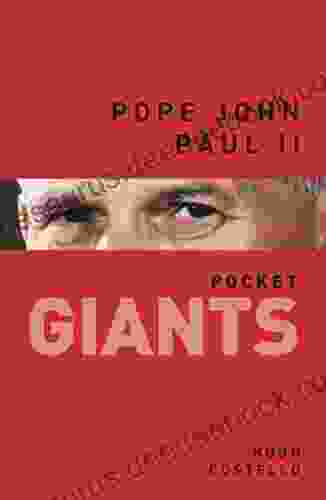Calvin Coolidge and the 1919 Boston Police Strike: A Tale of Law, Order, and Legacy

4.4 out of 5
| Language | : | English |
| File size | : | 3317 KB |
| Text-to-Speech | : | Enabled |
| Screen Reader | : | Supported |
| Enhanced typesetting | : | Enabled |
| Word Wise | : | Enabled |
| Print length | : | 268 pages |
In the annals of organized labor, few events hold the same historical significance as the Boston Police Strike of 1919. This watershed moment in American history witnessed a dramatic collision between the forces of labor and authority, leaving an enduring legacy that continues to shape our understanding of law enforcement, labor relations, and the role of government in maintaining social order.
At the heart of this tumultuous episode was a young politician named Calvin Coolidge, then Governor of Massachusetts. Coolidge's response to the strike would catapult him onto the national stage, propelling him to the presidency in 1923. His actions during this crisis would both define his political persona and shape the course of American history.
The Genesis of Unrest
The Boston Police Strike did not arise in a vacuum. It was the culmination of simmering tensions between the Boston Police Department and its rank-and-file officers. At the turn of the 20th century, police officers in Boston, like their counterparts in many other cities, faced grueling working conditions, low pay, and limited opportunities for advancement.
As the First World War raged in Europe, inflation eroded the already meager wages of Boston's police officers. The escalating cost of living put a severe strain on their families, fostering a sense of discontent and resentment within the ranks.
The Birth of a Union
In response to these grievances, a group of Boston police officers, led by Patrolman Michael J. Crowley, formed the Boston Police Union in 1918. The union sought to improve working conditions, increase wages, and provide officers with a collective voice in their dealings with the city administration.
The formation of the union was met with fierce resistance from the Boston Police Commissioner, Edwin U. Curtis. Curtis, a staunch opponent of organized labor, refused to recognize the union or engage in negotiations with its representatives.
The Spark Ignites: the Police Strike
Tensions escalated further in August 1919 when the Boston Police Union voted to affiliate with the American Federation of Labor (AFL). This move directly challenged Commissioner Curtis's authority and set the stage for the strike that would soon follow.
On September 9, 1919, more than 1,100 Boston police officers walked off the job, demanding recognition of their union and improved working conditions. The strike brought the city to a standstill, leaving it vulnerable to crime and disorder.
Governor Calvin Coolidge, facing a crisis that threatened the safety and stability of the Commonwealth, took swift and decisive action. He refused to negotiate with the striking police officers and ordered the Massachusetts National Guard to restore order in the city.
Coolidge's Iron Fist
Coolidge's response to the strike was both swift and forceful. He deployed the National Guard to patrol the streets of Boston, and he ordered the arrest of any striking police officers who resisted or refused to return to work.
Coolidge's unwavering stance sent a clear message that he would not tolerate any challenge to the rule of law. His actions drew both praise and criticism, with some accusing him of being too harsh and others applauding his decisive leadership.
Despite the widespread condemnation from organized labor and some sectors of the public, Coolidge remained steadfast in his conviction that the strike was an illegal act that threatened the safety and welfare of the citizens of Boston.
The Strike's Resolution
The Boston Police Strike lasted for eight days, ending on September 17, 1919. The striking officers, facing overwhelming pressure from the National Guard and public opinion, reluctantly returned to work.
In the aftermath of the strike, Commissioner Curtis resigned, and many of the striking officers were fired or suspended. The Boston Police Union was dissolved, and the city enacted new regulations restricting the rights of municipal employees to organize and strike.
Coolidge's Legacy
Calvin Coolidge's handling of the Boston Police Strike cemented his reputation as a strong and decisive leader. His unwavering commitment to law and order resonated with the American public, who were weary of the social unrest that had plagued the country in the wake of World War I.
Coolidge's actions in Boston propelled him into the national spotlight, and he was subsequently elected Vice President in 1920 and President in 1923. His presidency was marked by a conservative approach to government, a belief in limited government intervention, and a strong emphasis on law enforcement.
Coolidge's legacy is complex and controversial. His handling of the Boston Police Strike is often cited as an example of his tough stance on labor unrest, while his economic policies are credited with helping to usher in a period of economic prosperity in the 1920s.
The Boston Police Strike of 1919 was a pivotal moment in American history, testing the limits of authority, challenging societal norms, and leaving a lasting legacy that continues to shape our understanding of labor relations, law enforcement, and the role of government in maintaining social order.
Calvin Coolidge's decisive actions during the strike catapulted him into the national spotlight and would ultimately propel him to the presidency. His unwavering commitment to law and order resonated with the American public, who were weary of the social unrest that had plagued the country in the wake of World War I.
The Boston Police Strike remains a reminder of the complex and often-fraught relationship between labor and authority. It is a story of power, resistance, and the enduring struggle to balance the rights of workers with the need for public safety and order.
4.4 out of 5
| Language | : | English |
| File size | : | 3317 KB |
| Text-to-Speech | : | Enabled |
| Screen Reader | : | Supported |
| Enhanced typesetting | : | Enabled |
| Word Wise | : | Enabled |
| Print length | : | 268 pages |
Do you want to contribute by writing guest posts on this blog?
Please contact us and send us a resume of previous articles that you have written.
 Book
Book Story
Story Paperback
Paperback Magazine
Magazine Newspaper
Newspaper Sentence
Sentence Bookmark
Bookmark Glossary
Glossary Bibliography
Bibliography Preface
Preface Synopsis
Synopsis Scroll
Scroll Codex
Codex Tome
Tome Classics
Classics Library card
Library card Narrative
Narrative Biography
Biography Autobiography
Autobiography Memoir
Memoir Encyclopedia
Encyclopedia Resolution
Resolution Catalog
Catalog Card Catalog
Card Catalog Borrowing
Borrowing Archives
Archives Periodicals
Periodicals Study
Study Reserve
Reserve Journals
Journals Reading Room
Reading Room Rare Books
Rare Books Special Collections
Special Collections Interlibrary
Interlibrary Thesis
Thesis Dissertation
Dissertation Storytelling
Storytelling Awards
Awards Reading List
Reading List Theory
Theory Jenifer Ruff
Jenifer Ruff Maxine Rosenthal
Maxine Rosenthal Nikki Usher
Nikki Usher Alex Thomas Davis
Alex Thomas Davis Daniel Pinkwater
Daniel Pinkwater Jonathan Swift
Jonathan Swift Sharon Barnes
Sharon Barnes Andreea S Micu
Andreea S Micu John T Shaw
John T Shaw Diane Stanley
Diane Stanley June Mackey
June Mackey Star Edwards
Star Edwards Cynthia R Daniels
Cynthia R Daniels Taran Matharu
Taran Matharu Peter Michael
Peter Michael Kate Dopirak
Kate Dopirak Megan Angelo
Megan Angelo Shawntelle Madison
Shawntelle Madison Angelo Metropoulos
Angelo Metropoulos Layla F Saad
Layla F Saad
Light bulbAdvertise smarter! Our strategic ad space ensures maximum exposure. Reserve your spot today!
 Andy HayesFollow ·5.2k
Andy HayesFollow ·5.2k Robert BrowningFollow ·10.3k
Robert BrowningFollow ·10.3k Jack LondonFollow ·11.5k
Jack LondonFollow ·11.5k Glen PowellFollow ·16.2k
Glen PowellFollow ·16.2k Todd TurnerFollow ·6.7k
Todd TurnerFollow ·6.7k Owen SimmonsFollow ·10.3k
Owen SimmonsFollow ·10.3k Mikhail BulgakovFollow ·16k
Mikhail BulgakovFollow ·16k Jaden CoxFollow ·15.8k
Jaden CoxFollow ·15.8k

 Gary Reed
Gary ReedWeb to Web for Beginners: A Comprehensive Guide to...
In today's interconnected world, websites...

 Elliott Carter
Elliott CarterThe Moon Is Down: John Steinbeck's Poignant Portrait of...
In the annals of literature, John...

 Dalton Foster
Dalton FosterMark The Mechanic: The Incredible Story Of A Young...
In the vibrant realm of robotics, where...

 Fred Foster
Fred FosteriPhone 13 Pro Max User Guide: Everything You Need to Know
The iPhone 13 Pro Max...

 Rodney Parker
Rodney ParkerPope John Paul II: The Pocket Giant Who Inspired Millions
Pope John Paul II, or...
4.4 out of 5
| Language | : | English |
| File size | : | 3317 KB |
| Text-to-Speech | : | Enabled |
| Screen Reader | : | Supported |
| Enhanced typesetting | : | Enabled |
| Word Wise | : | Enabled |
| Print length | : | 268 pages |













